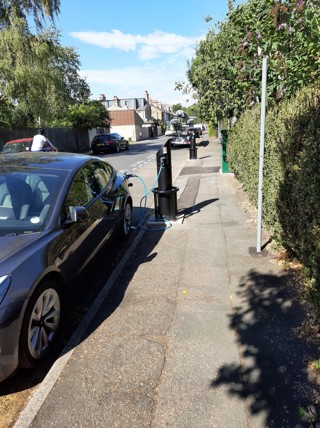Fleet suppliers adopting a ‘one size fits all’ approach to push small business customers into a traditional sales funnel is doomed to failure, according to new research by automotive industry research and insight agency Sewells.
Lumping together all SME customers into a ‘business sales’ function fails to recognise the diversity and rapidly-evolving nature of the UK’s vibrant SME sector, where a company’s transport needs may undergo fundamental shifts in a matter of months.
In the second module of a three-part in-depth examination of the market dynamics of the buoyant SME (Small and Medium Enterprise) sector, Sewells researchers identified large variations in transport and mobility needs across five clearly differentiated sectors. This segmentation highlights both the differences and the similarities in fleet management priorities across the 480,000 SMEs operating some 2.5 million cars and vans in the fields of Business, Trade, Professional, Delivery and Administrative Services.
The report found that day-to-day challenges of keeping vehicles on the road dominate the priorities of the majority of SMEs when choosing cars and vans – but more subtle factors need to be considered when approaching certain sectors.
Understanding the commonalities and the differences in operational priorities between these different sectors is fundamental for effectively engaging SMEs with targeted, relevant and timely marketing communications.
For example, while white-collar businesses such as solicitors, accountants or creative professionals focus on brand image and providing perk cars to attract talent, administrative services companies who are completely reliant on cars and vans tend to spend the bare minimum on keeping their employees mobile.
And, while business services companies focus relentlessly on the bottom line, for delivery services companies working in the demanding retail and despatch sectors, reliability and minimal downtime are higher priorities than cost cutting. The report concludes that the scatter-gun approach to prospecting for business is simply too wasteful and that establishing a meaningful long-term rapport with SME customers to establish their specific needs will pay dividends in the longer term.
“According to our findings, the death of the traditional sales funnel is imminent,” said report editor Mark Sutcliffe. “The explosion of digital channels has enabled marketeers to bombard potential customers with sales incentives and special offers, yet conversion rates are in freefall as most of this marketing material ends up, unread, in the recycling bin.
“Using the internet to identify and understand the needs of potential customers rather than clicking ‘Send’ on a blanket email to a 1,000 random prospects is more likely to get a positive response,” continued Sutcliffe.
“It seems blindingly obvious, but using an identical sales approach with a firm of solicitors whose senior partners drive Audis and BMWs and a building contractor who only runs Transit vans clearly has limited relevance and credibility with one or both potential clients. Spending time online to understand their business priorities before making that sales call can foster a much more productive conversation.”
The research also identified significant differences in the way Micro (1-9 employees), Small (10 – 49 employees) and Large (50 – 249 employees) approach vehicle sourcing and management.
Sewells research found that SME fleets operating less than 10 vehicles typically adopted an ad hoc approach to vehicle sourcing, with senior management often directly involved in the buying decision – usually in response to external events such as an insurance write-off or MOT failure.
In larger organisations, evidence of a more structured approach was more widespread, with sub-25 vehicle fleets in cost-focused sectors such as business and administrative services using the Internet and informal tender processes to benchmark the market.
Outsourcing of the fleet to leasing companies or fleet management specialists was rare in the sub-25 sector, but more commonplace among medium-sized organisations who couldn’t justify the cost of retaining in-house fleet management expertise. The exception to this pattern was among van-dominated fleets with some HGVs, where in-house expertise was more prevalent.
In all cases, the research found a wide range of funding solutions, with outright purchase of vehicles and even sourcing of nearly new or second hand vehicles more common among smaller fleets.



















Login to comment
Comments
No comments have been made yet.